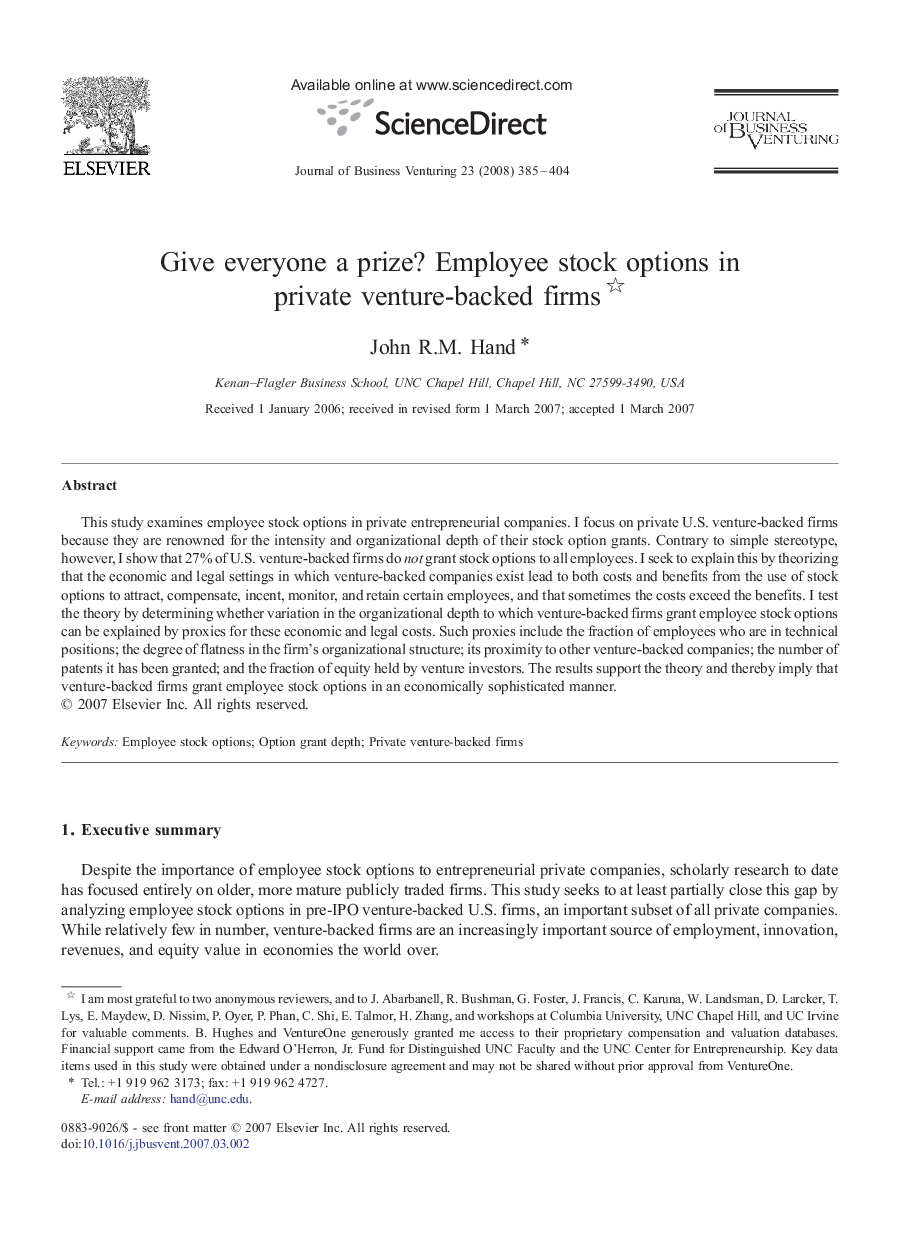| Article ID | Journal | Published Year | Pages | File Type |
|---|---|---|---|---|
| 1019801 | Journal of Business Venturing | 2008 | 20 Pages |
This study examines employee stock options in private entrepreneurial companies. I focus on private U.S. venture-backed firms because they are renowned for the intensity and organizational depth of their stock option grants. Contrary to simple stereotype, however, I show that 27% of U.S. venture-backed firms do not grant stock options to all employees. I seek to explain this by theorizing that the economic and legal settings in which venture-backed companies exist lead to both costs and benefits from the use of stock options to attract, compensate, incent, monitor, and retain certain employees, and that sometimes the costs exceed the benefits. I test the theory by determining whether variation in the organizational depth to which venture-backed firms grant employee stock options can be explained by proxies for these economic and legal costs. Such proxies include the fraction of employees who are in technical positions; the degree of flatness in the firm's organizational structure; its proximity to other venture-backed companies; the number of patents it has been granted; and the fraction of equity held by venture investors. The results support the theory and thereby imply that venture-backed firms grant employee stock options in an economically sophisticated manner.
